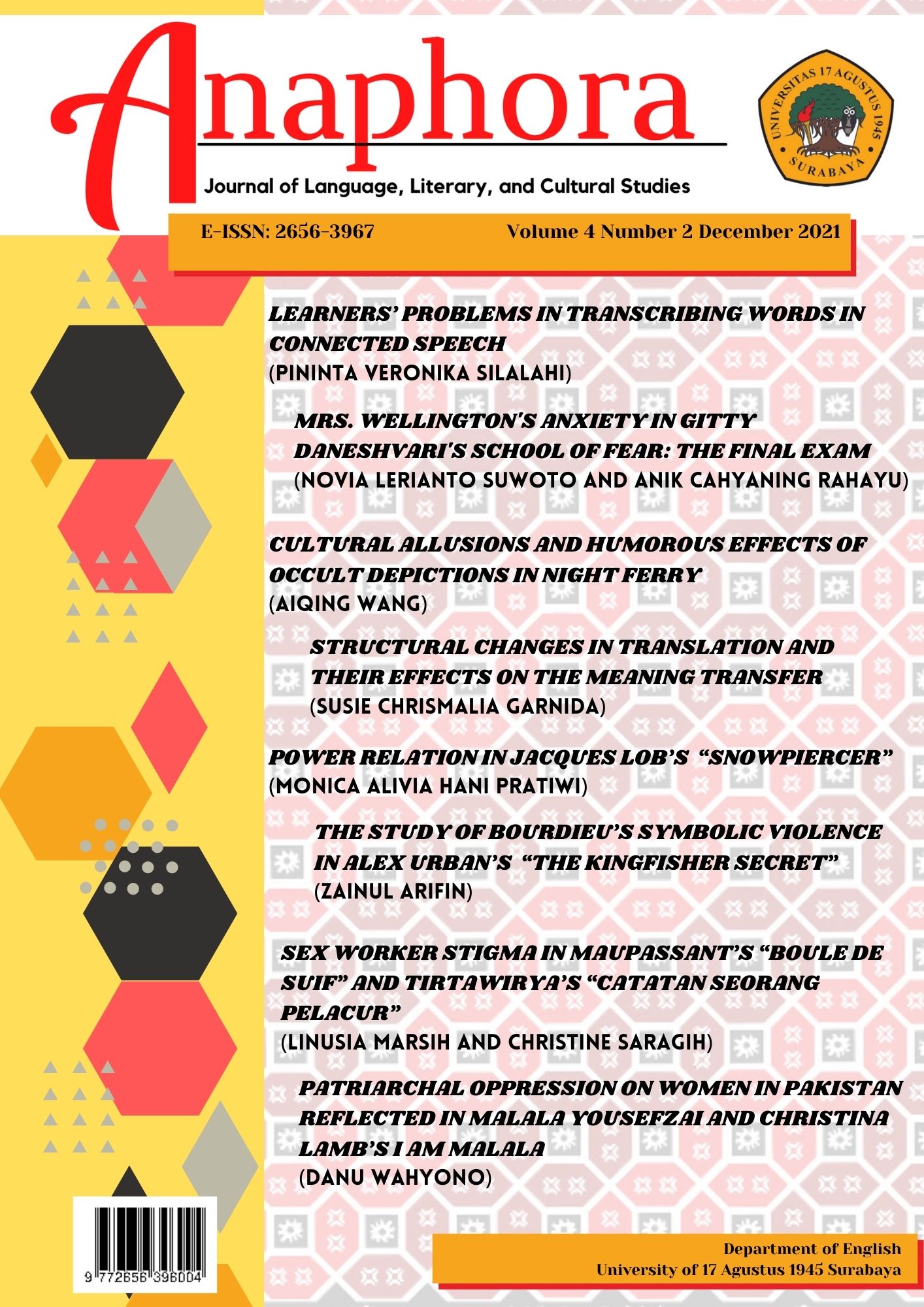PATRIARCHAL OPPRESSION ON WOMEN IN PAKISTAN REFLECTED IN MALALA YOUSEFZAI AND CHRISTINA LAMB’S I AM MALALA
DOI:
https://doi.org/10.30996/anaphora.v4i2.6075Keywords:
Patriarchal oppression, Women, Malala, Taliban, BurqaAbstract
The study explores the patriarchal oppression on women reflected in Malala Youefzai and Christina Lamb’s I am Malala. The study aims to identify the forms, the cause, and the impact of the patriarchal oppression on women especially on the Pashtun women of the Swat Valley, Pakistan. The research designed used is a qualitative research. Meanwhile, the approach employed is psychological approach. The study shows that there are some forms of patriarchal oppression on women: cultural dominance, powerlessness, exploitation, violence and marginalization. The women are discriminated and mistreated in many ways. The patriarchal oppression on women is the result of the regime of General Zia’s government and also the rules set by the Taliban group. Pashtun women are marginalized. It is an excuse of keeping the Chasity and dignity that the civilization had changed. Culture and tradition play a role as the cause of patriarchal oppression on the Pashtun women where many families dictate a strong preference of sons over daughters. Meanwhile, there are two impact of patriarchal oppression on Pashtun women, physically and emotionally. Many women become illiterate, have no skills except doing housework and end up depending on men for their survival. They also suffer of excessive fear and anxiety and the worst impact is being killed.
Downloads
Downloads
Published
How to Cite
Issue
Section
License
Authors whose manuscript is published will approve the following provisions:
-
The right to publication of all journal material published on the jurnal anaphora website is held by the editorial board with the author's knowledge (moral rights remain the property of the author).
-
The formal legal provisions for access to digital articles of this electronic journal are subject to the terms of the Creative Commons Attribution-ShareAlike (CC BY-SA) license, which means Jurnal Persona reserves the right to store, modify the format, administer in database, maintain and publish articles without requesting permission from the Author as long as it keeps the Author's name as the owner of Copyright.
-
Printed and electronic published manuscripts are open access for educational, research and library purposes. In addition to these objectives, the editorial board shall not be liable for violations of copyright law.















